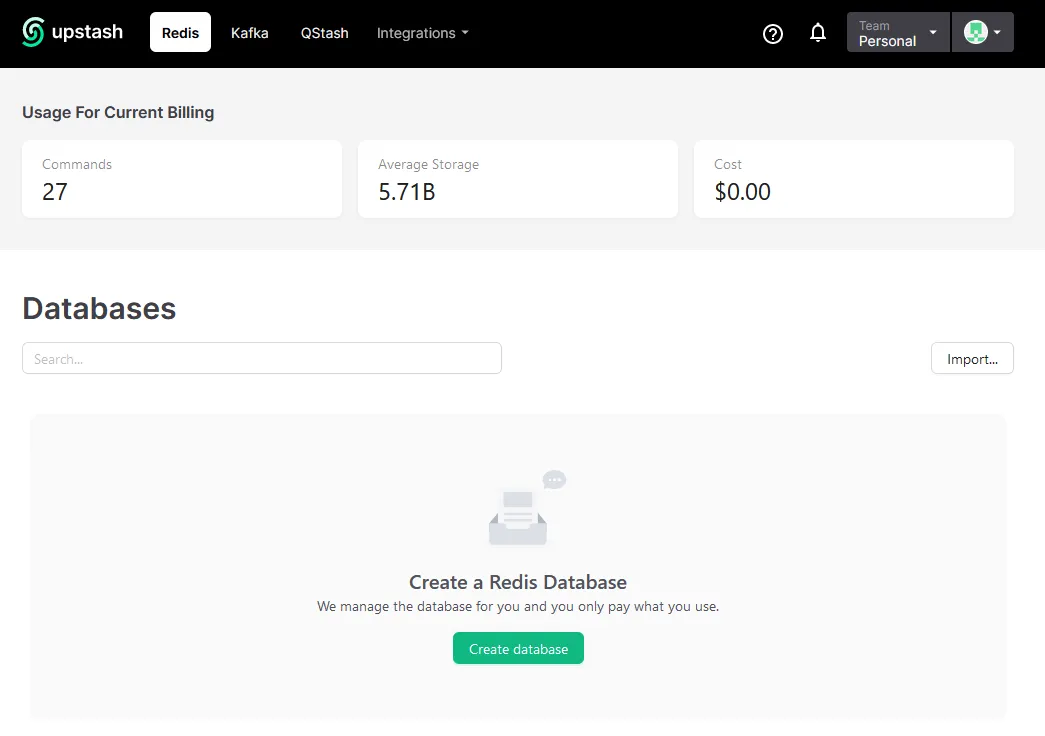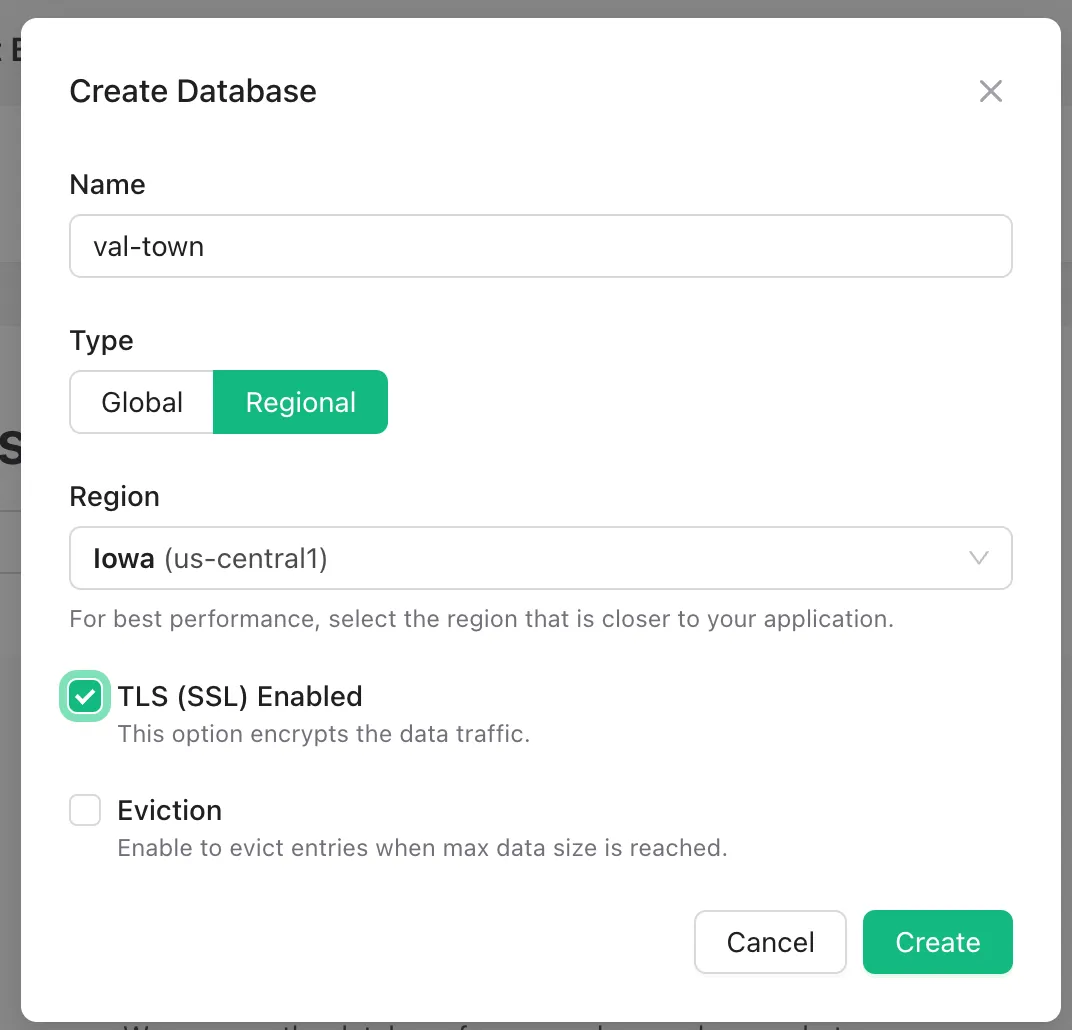Upstash
Upstash provides a serverless Redis database, which can be used as a key-value store of up to 1mb with a free account.
Create an Upstash account
Go to https://console.upstash.com/login
Create a database
- Click Create database

- Name: whatever you want.
- Type: Regional
- Region: Iowa (us-central1), because it’s closest to Val Town’s servers.
- Enable TLS for security.

Add REST credentials to Val Town environment variables
- Go to val.town/settings/environment-variables
- For
UPSTASH_REDIS_REST_URLand theUPSTASH_REDIS_REST_TOKENeach:- Click New env variable.
- Set the names to
upstashURLandupstashToken, respectively - Copy & paste in the value
- Click Add
Upstash:

Val Town:

Set some data
If you set it up correctly, you should be able to Run this Val and have it return the same results from your own Upstash database
import { Redis } from "npm:@upstash/redis";
const redis = new Redis({ url: Deno.env.get("upstashURL"), token: Deno.env.get("upstashToken"),});console.log(await redis.set("foo", "bar"));console.log(await redis.get("foo"));Saving JSON
JSON is automatically stringified and parsed so you can set it and get it directly. You can store a JSON object of up to 1mb this way with a free acount.
import { Redis } from "npm:@upstash/redis";
const redis = new Redis({ url: Deno.env.get("upstashURL"), token: Deno.env.get("upstashToken"),});await redis.set("json-ex-1", { a: { b: "nested json" } });console.log(((await redis.get("json-ex-1")) as any).a.b);Further resources
Thanks to @mattx for contributions to this resource!